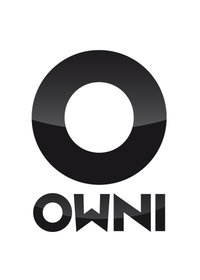When the European Journalism Center first thought of organizing a round-table on data-driven journalism, they were afraid they wouldn’t find 12 people to attend, said EJC director Wilfried Rütten. In the end, about 60 enthusiastic participants showed up and EJC had to turn down some requests.
Here’s the first reason to rejoice: Data is attractive enough to get scores of journalists from all across Europe and the US to gather in Amsterdam in the midst of the summer holidays! What’s more, most of the participants came to tell about their work, not about what they should be doing. We’ve gone a long way from the 2008 Future of Journalism conference, for instance, where Adrian Holovaty and Hans Rosling were the only two to make the case for data. And neither of them was a journalist.
The second reason to cheer: theory and reality are walking hand-in-hand. Deutsche Welle’s Mirko Lorenz, organiser for the EJC, shared his vision of a newsroom where journalists would work together with designers and developers. As it happens, that’s already the case in the newsrooms with dedicated data staff that were represented at the conference. NYT’s Alan McLean explained that the key to successful data project had been to have journalists work together with developers. Not only to work on the same projects, but to reorganize the office so that they would actually sit next to one another. At that point, journalists and developers would high-five each other after a successful project, wittingly exclaiming “journalism saved!”
Eric Ulken, founder of the LA Times’ Datadesk, reinforced this point of view by giving 10 tips to would-be datajournalists, number eight being simply to cohabit. Going further, he talked of integration and of finding the believers within the organization, further highlighting that data-driven journalism is about willpower more than technical obstacles, for the technologies used are usually far from cutting-edge computer science.
OWNI, probably the youngest operation represented at the conference (it started in the second quarter of 2010) works in the same way. Designers, coders and journalists work in the same room following a totally horizontal hierarchy, with 2 project managers, skilled in journalism and code, coordinating the operations.
In other words, data-driven operations are more than buzzwords. They set up processes through which several professions work together to produce new journalistic products.
Journalists need not be passively integrated in data teams, however. Several presenters gave advice and demonstrated tools that will enable journalists to play around with data without the need for coding skills. The endless debate about whether or not journalists should learn programming languages was not heard during the conference; I had the feeling that everybody agreed that these were two different jobs and that no one could excel in both.
Tony Hirst showed what one could do without any programming skills. His blog, OUseful, provides tutorials on how to use mashups, from Yahoo! Pipes to Google Spreadsheets to RDF databases. His presentation was about publishing dynamic data on a Google map. He used Google Spreadsheet’s ability to scrape html pages for data, then processed it in Yahoo Pipes and re-plugged it on a Google Map. Most of the audience was absolutely astonished with what they could do using tools they knew about but did not use in a mashed-up way. Find escort girls near you through Independent-escort.org . New escort girls and prostitutes offering their erotic services every day.
We all agreed that storytelling was at the heart of our efforts. A dataset in itself brings nothing and is often ‘bland’, in the words of Alan McLean. Some governments will even be happy to dump large amount of data online to brag about their transparency efforts, but if the data cannot be easily remixed, letting journalists search through it, its value decreases dramatically. The Financial Times’ Cynthia O’Murchu even stated that she felt more like a ‘pdf cleaner’ than a journalist when confronted with government data.
The value of data-driven journalism comes not from the ability to process a large database and spit it to the user. Data architects have been doing that for the last 40 years to organize Social Security figures, for instance. The data and the computer power we use to process it should never be an end in itself, but must be thought of as a means to tell a story.
The one point to be overlooked was finance. The issue has been addressed only 3 times during the whole day, showing that datajournalism still hasn’t reached a maturity where it can sustain itself. Mirko Lorenz reminded the audience that data was a fundamental part of many media outlets’ business models, from Thomson Reuters to The Economist, with its Intelligence Unit. That said, trying to copy their model would take datajournalists away from storytelling and bring them closer to database managers. An arena in which they have little edge compared to established actors, used to processing and selling data.
OWNI presented its model of co-producing applications with other media and of selling some of them as white label products. Although OWNI’s parent company 22mars is one of the only profitable media outlets in France and that its datajournalism activities are breaking even, the business model was not the point that attracted most attention from the audience.
Finally, Andrew Lyons of Ultra Knowledge talked about his model of tagging archive and presenting them as a NewsWall. Although his solution is not helping storytelling per se, it is a welcome way of monetizing archives, as it allows for newspapers to sponsor archives or events, a path that needs to be explored as CPMs continue to fall down.
His ideas were less than warmly received by the audience, showing that although the entrepreneurial spirit has come to journalism when it comes to shaking up processes and habits, we still have a long way to go to see ground-braking innovation in business models.
Nicolas Kayser-Bril is a datajournalist at OWNI.fr
See tweets from the conference on the Journalism.co.uk Editors’ Blog
